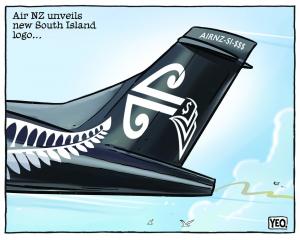Last week, Scottish National Party leader and First Minister Alex Salmond and British Prime Minister David Cameron signed the agreement to hold a referendum in 2014 asking Scots whether their homeland should become an independent country or remain within the United Kingdom. The British voting age of 18 will be reduced to allow 16 and 17-year-olds to vote in the referendum.
The outcome could spell the end of a union that has lasted 305 years and will be watched closely by other countries and regions with similar causes. Scotland has its own flag, legal system and sports teams, and a distinctive national identity. Mr Salmond says home rule would provide the "means to create a fairer and more prosperous Scotland", which he claims would be entitled to the majority of the huge North Sea oil revenues.
However, this is a major bone of contention, along with the future of Britain's nuclear submarine fleet, based in Scotland, which Mr Salmond does not want.
England claims an independent Scotland, with a population of about 5 million, would struggle financially, because the majority of its funding comes from a 30 billion ($NZ59 billion) UK Government grant and the "big issues" - such as the economy, defence and its place in the world - will see Scots voting to remain in the United Kingdom. Mr Cameron agrees Scots should decide their fate, but wants "to keep the family together", saying: "We're stronger together around the world, we're safer together here at home, we're better off together, our economies are stronger."
Mr Salmond's pro-independence party won an unprecedented majority in last year's election, giving it a "clear mandate" to hold a referendum, although recent opinion polls show only 30% to 40% of Scots favour independence.
There are similar moves by groups in European regions such as Catalonia and Flanders, which seek either higher levels of self-government or full political independence with their own voice in the European Union.
The outcome could also renew calls from sectors in this country and Australia who wish to become fully independent of the United Kingdom. Republicans argue a New Zealander should be head of state, not the Queen or her representative the Governor-General, which would better reflect New Zealand's national identity, culture and heritage, and mean greater democracy and accountability. (It is worth noting that under the Scottish National Party's plans for independence, Scotland would retain the Queen as head of state and remain within the Commonwealth.)
Also of interest in the Scottish independence debate is the unresolved issue of automatic European Union membership and whether Scotland would join the euro zone, meaning its economic policy would be dictated from outside its borders.
Given the economic crisis facing countries such as Greece and Spain, and the austerity measures being demanded of their governments and citizens by other euro group members, notably Germany, the idea of true "independence" for Scotland might not be the case in practice, as there would be obligations to being part of the euro zone and as a European Union member in its own right.
The European Commission president, Jose Manuel Barroso, said all new states had to apply to join the EU and must be accepted by existing members. If Scotland had to apply to join as a new member state, it would need to join the euro zone and sign the Schengen agreement, which relaxes borders and enables passport-free movement between countries. Opponents of independence claim this would lead to controls at the English border, if the rest of the United Kingdom remained outside Schengen.
What is clear is that issues surrounding Scottish independence are many and varied and far from decided. The will of the people is not yet certain either: the world will have to watch and wait until a verdict is delivered at the ballot box in 2014.












